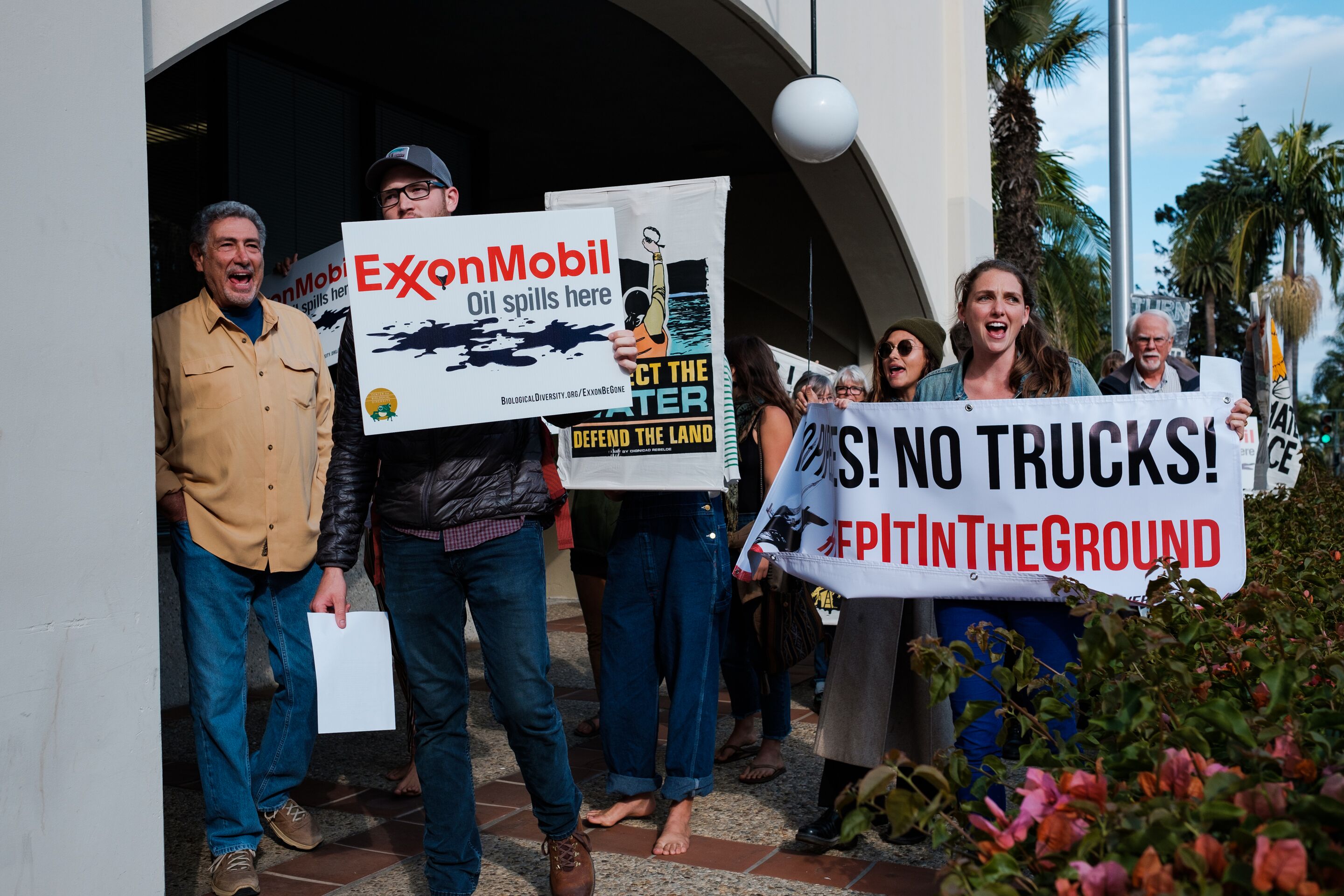A coalition of major environmental groups opposes ExxonMobil using trucks to transport offshore oil to refineries, and Santa Barbara County’s final environmental impact report released in July gives them no comfort that is anywhere near safe. No doubt the county will hear from that coalition as well as the public during hearings set for Sept. 2 and 9 on the EIR before voting on it. All details on the plan are here.
“Trucks are the least safe way to transport oil — in human death, property destruction, and amount of oil spilled,” said Katie Davis, chair of our Sierra Club Los Padres Chapter. “Not only that, but this environmental report is severely lacking by leaving out the oil spills and other risks of restarting the aging oil rigs and Gaviota Coast oil facilities, which were one of the largest sources of air pollution in the county.” “No wonder this proposal has faced immense backlash and opposition from Chumash elders to students to businesses to city councils,” she concluded.
The EIR data declares there would be significant, unavoidable impacts, including effects on wildlife and cultural resources in the event of an oil spill from a tanker truck. But it does not analyze the numerous harmful impacts of bringing Exxon’s three offshore platforms back online.
“The county’s report fails to disclose the devastating impacts that will result if ExxonMobil is allowed to resume oil drilling in the Santa Barbara Channel and truck oil along our scenic highways,” said Linda Krop, chief counsel for the SB Environmental Defense Center, which represents Get Oil Out! and Santa Barbara County Action Network (SBCAN). “ExxonMobil’s proposal will result in more oil spills, air pollution, and increased climate change at a time when we need to pursue clean energy alternatives.”
The plan calls for loading up to 70 oil-filled trucks per day at its Las Flores facility for transport on coastal Highway 101 and Route 166, 24 hours a day, seven days a week to refineries in Kern County and Santa Maria. A majority of SB County voters oppose the notion, according to a recent poll that concludes nearly 3 out of 4 respondents said they were concerned “about the safety of our local highways ...”
ExxonMobil’s platforms were shut down in 2015 after the Plains All American Pipeline ruptured and spilled thousands of gallons of oil along the California coast. California suffers hundreds of oil truck incidents a year, and many result in oil spills. There were 216 trucking accidents along the route from 2015 to 2020, CHP data show, resulting in nine deaths and 92 injuries. Just on March 21, a tanker truck crashed off Highway 166, spilling more than 4,500 gallons of oil into the Cuyama River above Twitchell Reservoir.
Offshore oil itself also poses unacceptable risks of spills that threaten marine life along with air and water pollution. We know this from the massive 1969 oil blowout, the 2015 Refugio pipeline break and other lessor spills. Restarting the offshore platforms will also generate enormous levels of greenhouse gas emissions and contribute to climate change, undermining goals set by the county’s Energy and Climate Action Plan adopted in May 2015.
The coalition opposing the plan includes the groups mentioned above along with Wishtoyo Chumash Foundation, 350 Santa Barbara, Center for Biological Diversity, Food and Water Action, GOO!, UCSB reps and SB Surfrider Foundation.
